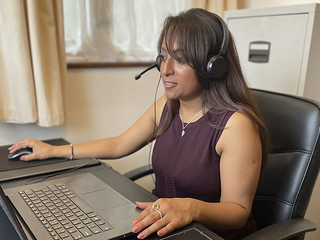Acute myeloid leukaemia (AML) symptoms and tests
Acute myeloid leukaemia (AML) types
The information from your tests will help to determine which type of AML you have. There’s a classification system used by doctors which was created by the World Health Organization (WHO).
This divides AML into different groups based on which cells have become abnormal, but you won’t hear doctors using this classification with you on a day-to-day basis.
The most important part of classifying AML is risk grouping. This classification is based on the amount of damage to your DNA (also called genetic abnormalities) and the number of leukaemia cells that are still in your bone marrow after your first course of treatment.
Risk groups
In some cases, especially for people having intensive treatment, healthcare teams often try to stratify, rather than classify your condition. Classification means dividing disease into different categories or types, whereas stratifying means defining how severe the leukaemia is. Stratifying helps your healthcare team to understand how the leukaemia might affect you and how easy or difficult it will be to treat.
Stratifying also gives doctors an idea about which treatments will be best for you.
There are three risk groups in AML. Risk often refers to how likely a relapse is (the cancer coming back).
- Low risk describes people with a good chance of being cured and a low risk of relapse. People at low risk won’t usually need a stem cell transplant. Occasionally, they may have a transplant later, if they do relapse.
- Intermediate risk describes people who are neither high nor low risk. Intermediate risk patients may or may not need a stem cell transplant.
- High risk describes people who have a high risk of relapse. They’ll have the most intensive treatment. People in the high risk group will often have a stem cell transplant early in their treatment, if it’s suitable for them.
Your risk group can change while you’re being treated – you can ask your healthcare team for any updates about your condition.

Worried about anything or have questions?
If you have any questions, worries, or just need someone to talk to, please don't hesitate to contact our Support Service by phone or email.
